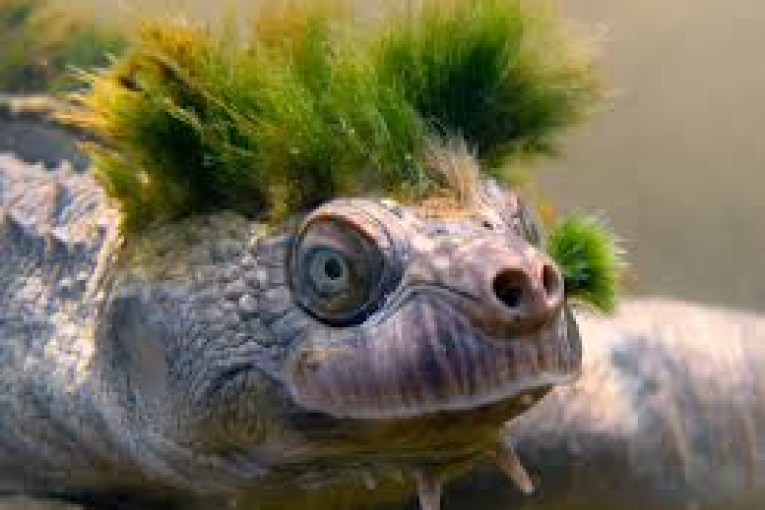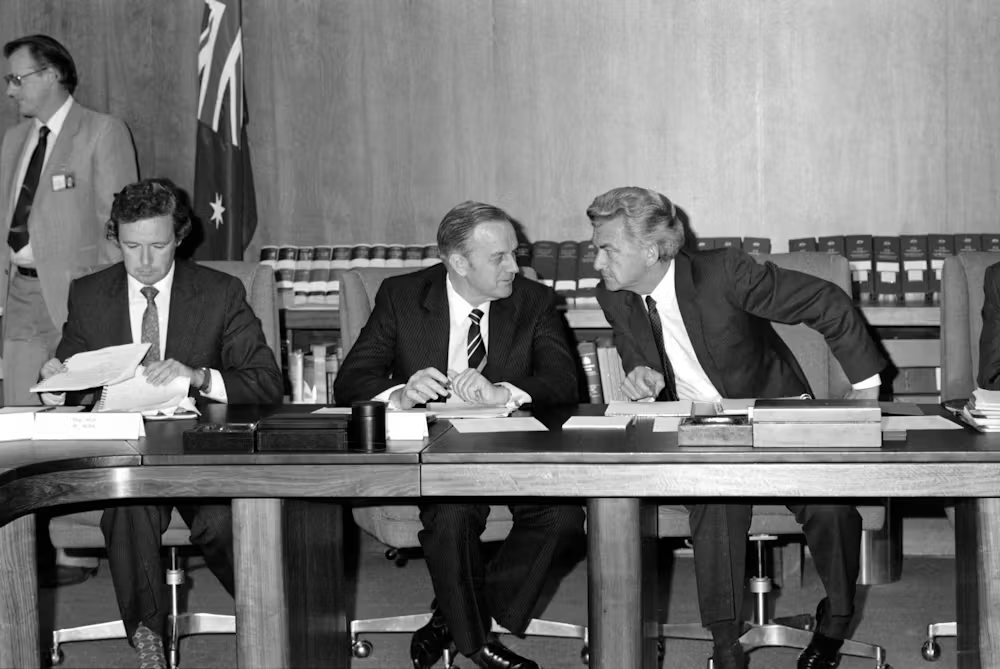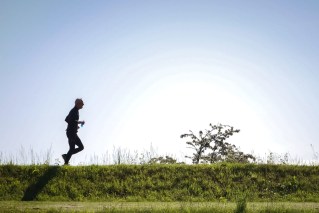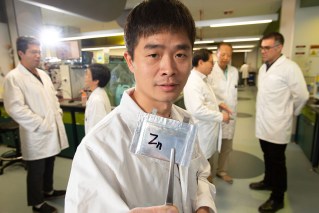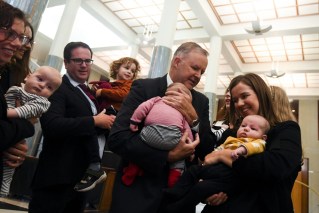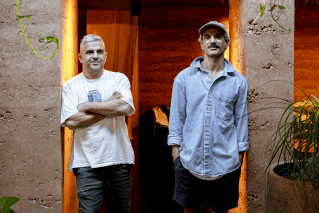Mind games: From Maxwell’s masterpiece to Beau’s bravery, it’s proof our greatest power is in our head
The mind has untapped power in sport when it comes to conquering hurdles many see as insurmountable – whether you are Paralympics hopeful Beau Vernon or cricket’s Glenn Maxwell.

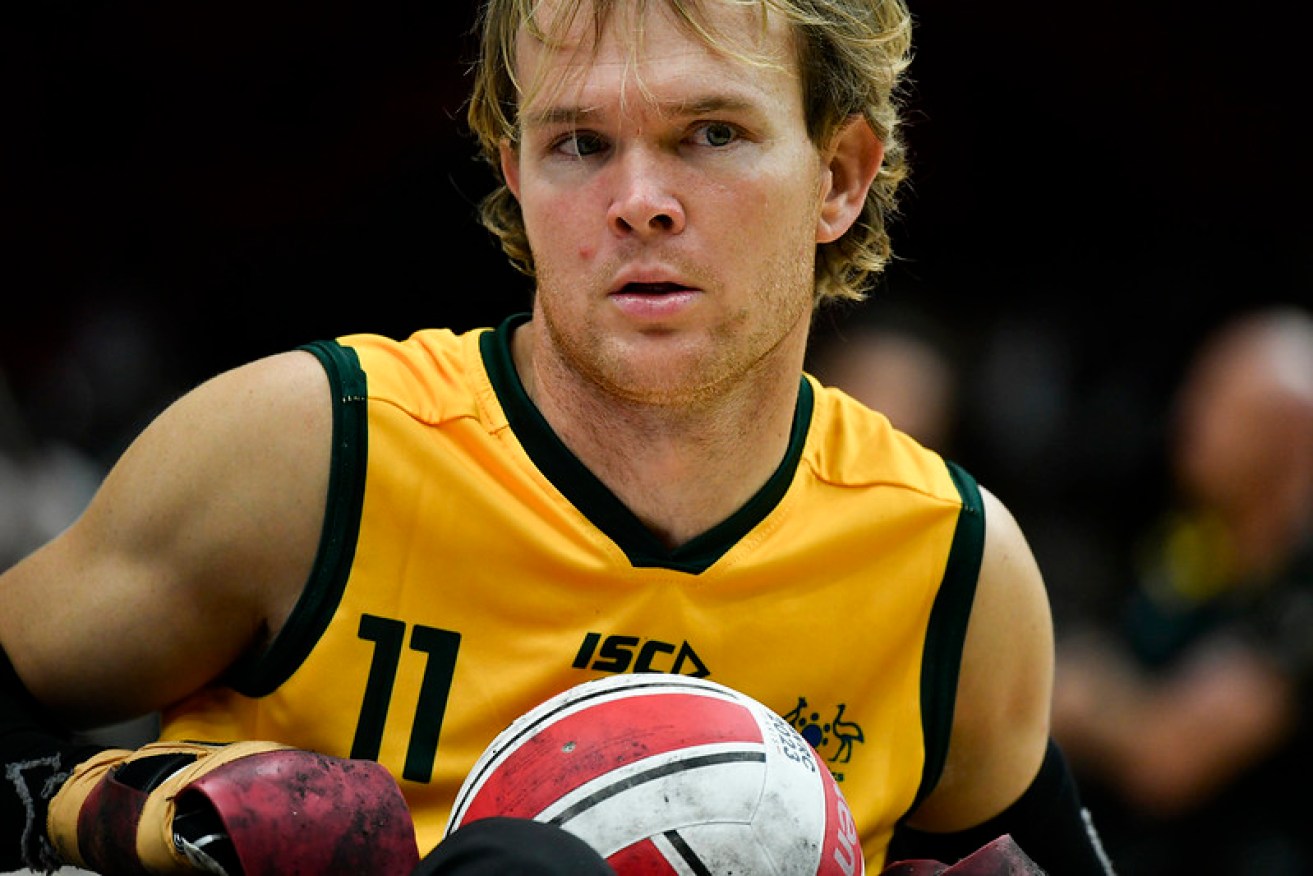
Australia's Beau Vernon in action against Japan at the wheelchair rugby World Cup in France. (Photo: D Echelard, Handisport.org)
Wheelchair rugby’s World Cup-winner Beau Vernon watched the highlights of a limping, cramping Glenn Maxwell score his stunning 201 not out and had one thought “the mind is a powerful thing.”
Maxwell pushed the boundaries of what he thought his body capable of during an innings that captivated the cricket world.
Sachin Tendulkar called it the best one-day international knock he’d ever seen and that from an Indian cricket legend who scored 49 ODI centuries of his own.
Having his feet in cement at the crease because of cramps and a back spasm forced Maxwell to focus on the ball more intently. He swatted fours and 10 sixes with breathtaking hand-eye co-ordination and bat speed. His resilience to fight on was next level.
How Tendulkar described the Maxwell process on X (formerly Twitter) was fascinating and something that Vernon would certainly relate to.
“Life and cricket have many parallels. Sometimes, like a spring, what pulls you back is also what propels you forward,” Tendulkar wrote of constrained footwork bringing out other Maxwell strengths.
Vernon goes on: “It was an amazing performance. You wonder why the mind is not exercised enough.”
As a young, aspiring Aussie Rules player in country Victoria, Vernon had to find the inner strength to propel forward after he was pulled back to earth in the most shattering way.
In 2012, he stooped to pick up a ball and copped a hip-and-shoulder to the head. His neck was dislocated and he’s lived life as a quadriplegic ever since.
He was once interviewed by ABC Radio for a series, The Year That Made Me. He chose 2012, the year where he admits to crying himself to sleep at least once a week in his hospital bed.
Some might think it a strange choice when it was the year he thought his life and dreams had ended at 23. He couldn’t feed himself or use a phone.
“Is this the life you want to live?” he said on repeat. Instead, he decided to attack his future. That same year changed him. It didn’t happen immediately but he got married to Lucy, they travelled to Europe and they started a family which now has the smiles of Layla, 7, Joey, 5, and Ollie, 3, to nourish them.
“Layla was maybe a one-year-old. We went to the beach with some other families where dads were throwing their kids up in the air or playing in the ocean. I wished I could do that and I’d probably worried how I’d cope as a father,” Vernon said.
The one-time house painter gave himself a fresh coat of outlook.
“My mind changed. I looked more at the things I did have … an awesome wife and daughter, a great family,” he said.
He had no movement in his fingers or from the chest down but his neck, shoulder and bicep muscles enabled him to be independent in a wheelchair.
The Vernon family now live outside Mooloolaba on Queensland’s Sunshine Coast where Beau is training to be part of Australia’s wheelchair rugby team for the 2024 2024 Paris Paralympics. His recent role in Australia’s gold medal-winning World Cup effort in France has inspired his quest even more.

Beau Vernon (No.11) sharing the winning trophy moment with the Australian Steelers in France. Photo credit: D Echelard, Handisport.org
The power of the mind, right?
It wasn’t a training call that brought him to Queensland. His body can’t regulate its own temperature. Basically, it can’t heat up in the cold so the hot and chill swings of Victoria were difficult to deal with.
“It’s a big decision to up and leave friends, family and your community but we love the outdoors and my body would rather be hotter than colder,” Vernon explains.
“It wasn’t a move for sport. I took the kids to a basketball day at the University of the Sunshine Coast and just bumped into a guy I’d known from wheelchair rugby. I didn’t even know they trained at USC.”
Last year’s chance meeting was with Chris Bond, Queensland’s decorated wheelchair rugby player. Bond already has gold medal success at the 2012 and 2016 Paralympics to draw on.
Vernon had tried wheelchair rugby nearly a decade earlier but this time training times fitted smoothly and his off-court life was settled.
You have to watch a wheelchair rugby match for yourself to understand how physical and skilful the sport is. The collision of machinery, the calculated blocking, the fight for possession and wheeling in for a well-planned try would challenge a player with full function. Try that challenge when missing both legs, having no finger movement or another hurdle.
Vernon’s role is as a blocker. He found himself bumped out of his wheelchair in one heavy contact during the Paris final against Canada.
“I just love the physical side. It’s almost if you are not tipped out of your chair, you are not trying hard enough,” Vernon said with his regular laugh.
“I’m not that patient as a person. I want to be good but good now. I’ve a massive desire to keep working and make the Paris Paralympics.” It’s as much for his kids as himself in many ways to show what hard work can bring.
Vernon’s varied sporting route is actually helping him to progress. Playing Aussie Rules was always his passion for Gippsland Power or Leongatha. When it was so suddenly taken away, the community rallied around him.
He still struggled to see how he’d remain involved in the sport he loved. He thought of coaching. He first had to know if a club would take an application seriously from a bloke in a wheelchair.
Leongatha welcomed him as senior coach in 2015. He won three flags in all as a premiership coach for the Parrots and Phillip Island Football Club to follow.
Having a coach’s mentality and leadership qualities has shone through now he’s a wheelchair rugby player. His communication skills are strong and he knows how potent team culture can be with better connection between the players.
His positive mind gave him the right headstart: “There will be hurdles to overcome but I’ve learnt since my accident that there is always a way around things.”
There were things most coaches don’t have to worry about like having an electric wheelchair so he could better get around the grassy sidelines at matches or raise himself up to the eye level of his players when he talked to them.
“When I played football I was a midfielder. I went from having the ball all the time to now very much being a role player in wheelchair rugby as a blocker,” Vernon said.
“Since I became a coach, I understand more about what emphasis on the ‘team’ really means. You do what you can as best you can in whatever role to make the team better.
“I’m a team sport guy. I love analysing a game in the moment and where I have to be. Being out on court at the World Cup in big moments was very cool in my first tournament for Australia.”
Without even making the point, you can understand how Vernon is changing perceptions by living life with such a positive attitude.
He’s heading to daycare with three-year-old Ollie next week to share his Paris gold medal and show off his wheelchair.
“I think it’s important to expose kids to wheelchairs as something normal in our communities,” Vernon said. “Quadriplegia has made life more challenging but not less fulfilling.”
Raising expectations on what people with a disability can do is how he lives his life but also how he hopes others can too with his work as a motivational speaker and as a director of Interact Australia.
Through not-for-profit Interact, he helps people into work by trying to open more eyes to what people with a disability can do.
The mind is a powerful thing. We can always be astounded by what’s possible, when we too often dwell on what’s not, whether you are Glenn Maxwell or Beau Vernon.
JIM TUCKER has specialised in sport, the wider impacts and features for most of his 40 years writing in the media.
